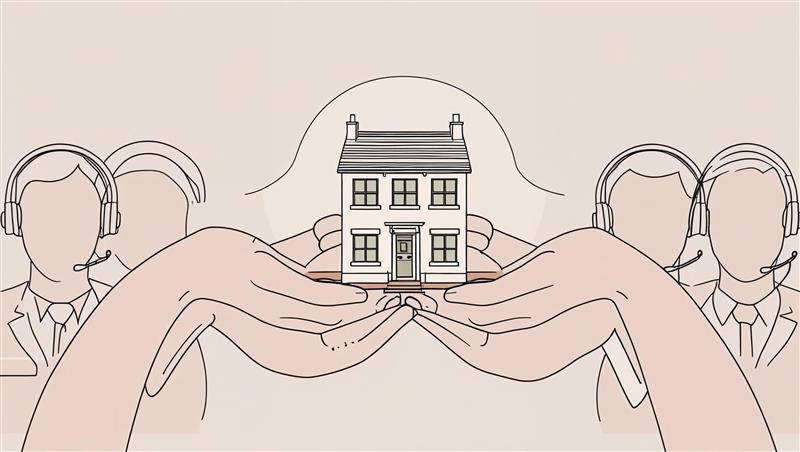In the social housing sector, customer service is far more than answering phones and logging repairs. It is the human face of the organisation, the bridge between residents and the services that shape their daily lives. Yet, for all its importance, customer service teams in housing associations and local authorities often operate under immense pressure: high call volumes, emotionally charged situations, and the constant challenge of resolving issues quickly and effectively.
So why is this function not just important, but vital, and how can we better support those in a customer services role?
The Role Customer Service Plays in Social Housing
For residents, the customer service team is the organisation. They are the first point of contact, the first people to hear concerns, and often the first to offer reassurance that issues will be resolved.
In the context of social housing, this means handling a wide spectrum of queries:
- Urgent repair requests
- Rent account queries and financial difficulties
- Complaints or concerns about safety and anti-social behaviour
- Navigating changes in policy or legislation
- Supporting vulnerable residents with additional needs
Good customer service doesn’t just solve problems, it builds trust, fosters transparency, and can diffuse situations before they escalate. When handled well, it reinforces the message that residents are listened to, respected, and valued.
The Challenges Behind the Smiles
Behind every polite greeting and empathetic tone is a complex set of pressures:
High Call Volumes: Housing providers can see huge spikes in calls during certain periods, winter heating issues, post-holiday rent arrears, or after major storms. Staff are expected to move swiftly from one call to the next, often with no downtime to regroup.
Emotional Labour: The nature of social housing means that calls can be emotionally charged. Customer service teams regularly hear distressing personal stories and must manage these with sensitivity while remaining professional and solutions-focused.
Pressure to Resolve Quickly: Targets for first-time resolution and call handling times can feel at odds with the need to listen fully and empathise. The urgency to meet KPIs sometimes forces teams to rush when residents may need more time.
Complexity of Cases: A single call may touch multiple service areas, for example, a tenant reporting damp might also disclose financial struggles, health issues, or family safety concerns. Staff must navigate this complexity while ensuring compliance with policies and regulations.
Why Getting Customer Service Right Matters
In social housing, effective customer service is not just about operational efficiency — it is about safeguarding wellbeing, preventing crises, and maintaining regulatory compliance.
- Resident Satisfaction: Positive interactions can drastically improve satisfaction scores, leading to fewer complaints and more constructive relationships.
- Reputation Management: The way an organisation responds in difficult moments can define public perception far more than glossy annual reports.
- Operational Efficiency: Quick, accurate responses reduce repeat calls, free up resources, and allow other teams to work more effectively.
- Risk Management: Poor handling of a complaint or missed follow-up on a safety concern can have serious consequences, legally, financially, and morally.
Strategies for Supporting Customer-Facing Teams
If we acknowledge the scale and complexity of the customer service role in social housing, the next step is ensuring teams have the tools, training, and emotional support to deliver exceptional service.
Invest in Training Beyond Systems: While system training is essential, equally important are skills in active listening, conflict resolution, and trauma-informed communication.
Prioritise Wellbeing: Access to mental health support, regular breaks, and manageable rotas can reduce burnout and increase staff retention.
Empower Decision-Making: Allowing frontline staff to resolve more issues without lengthy escalation not only improves the resident experience but also boosts morale.
Balance KPIs with Quality: KPIs are necessary, but they must be realistic and balanced with a focus on resident satisfaction, not just speed.
Use Data to Predict Demand: Analysing historical call patterns can help anticipate peaks and allocate resources accordingly.
The Future of Customer Service in Social Housing
Technology is already reshaping how residents interact with their housing providers, from live chat functions to resident portals for reporting repairs. These tools can help ease call volumes and allow staff to focus on more complex or sensitive cases.
However, technology cannot replace empathy. In fact, as automation handles the simpler queries, human interaction will become even more important for those cases where residents feel anxious, frustrated, or vulnerable.
The most successful organisations will be those that use technology to support, not replace, the human element, freeing up time for customer service teams to build genuine, trust-based relationships.
Final Thought
In the fast-paced, high-pressure environment of social housing, customer service is not an optional extra, it is the beating heart of the resident experience. By recognising the skill, resilience, and dedication this role demands, and by providing the right support, we can ensure customer service teams remain not just responsive, but genuinely transformative.





